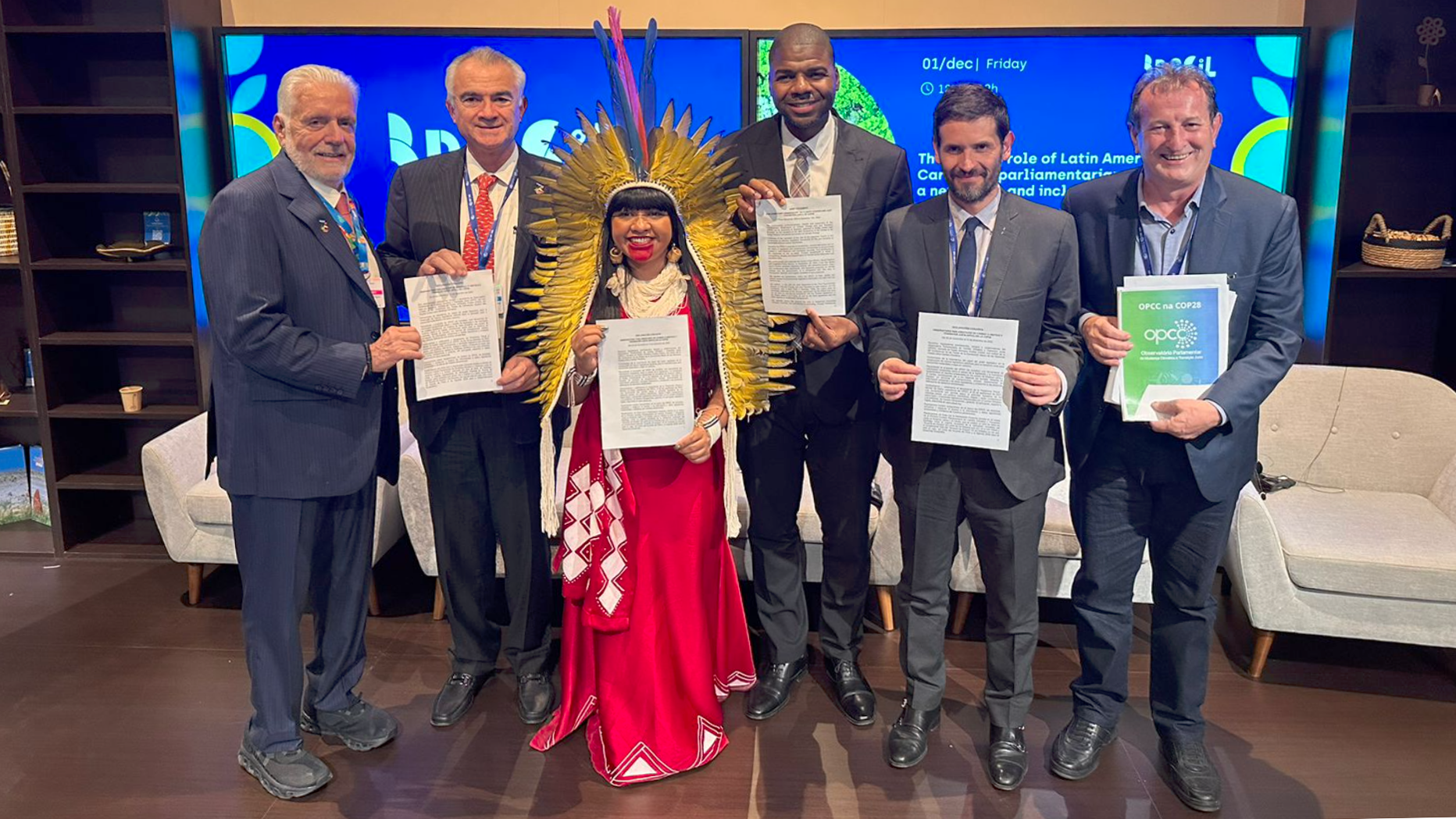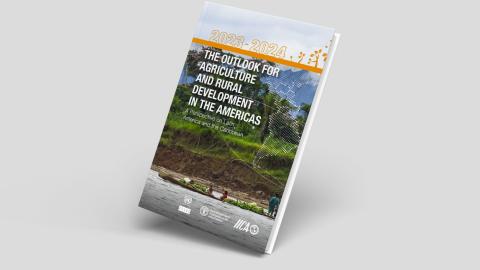Press Release
“The world leaders gathered here in Dubai in the coming days face a historic opportunity to transform development models into more productive, inclusive and sustainable ones,” José Manuel Salazar-Xirinachs, Executive Secretary of the Economic Commission for Latin America and the Caribbean (ECLAC), stressed today during his first official activity in the framework of the 28th Conference of the Parties to the United Nations Framework Convention on Climate Change (COP28), which is taking place through Tuesday, December 12 in the city of Dubai, United Arab Emirates.
The United Nations regional organization’s highest authority participated in a side event entitled The leading role of Latin American and Caribbean parliamentarians in building a new green and inclusive development model, organized by the Parliamentary Observatory on Climate Change and Just Transition (OPCC) in cooperation with the Government of Brazil.
Speaking at the event – which was inaugurated by Senator Jaques Wagner, leader of the Government at Brazil’s Federal Senate and co-founder of the OPCC – were Natalio D. Wheatley, Premier of the British Virgin Islands; Nilto Tatto, Member of the Environment Commission of the Chamber of Deputies of Brazil; Célia Xakriabá, President of the Amazon and Native Peoples Commission and of the Chamber of Deputies of Brazil; and Juan Carlos Losada, Member of the Ad Hoc Committee on Water and Biodiversity at the House of Representatives of the Colombian Congress.
In his remarks, José Manuel Salazar-Xirinachs recalled that Latin America and the Caribbean contributes relatively little to climate change: it is responsible for less than 10% of global greenhouse gas emissions. However, it is extremely vulnerable to global warming.
He explained that this is happening for two reasons. First, the region is located in a geographic area that is exposed to the extreme weather events caused by climate change, and second, countries have fewer resources to adapt to new climatic conditions.
An example of this is that the region’s natural assets, such as forests and biodiversity, are very sensitive to climate change. “These impacts are non-linear and heterogeneous between subregions and periods,” the Executive Secretary warned.
“ECLAC’s research shows that inaction regarding climate change will aggravate development gaps, as it can make low-income countries poorer, and it can further strengthen the middle-income trap. As the great Latin American economist Raul Prebisch put it, regarding the environmental crisis, ‘We are not facing new problems, but rather old problems that have become more severe.’ We therefore find ourselves at a key moment in which Latin America and the Caribbean and the world urgently need to shift development models to build a more productive, inclusive and sustainable future,” he emphasized.
The senior United Nations official recalled that in recent years, ECLAC has articulated a proposal dubbed the Big Push for Sustainability, which seeks to support the region’s countries in the construction of more sustainable development models. He added that it is an approach based on the coordination of policies to mobilize, accelerate and coordinate investments in strategic areas for sustainability.
He noted that in addition to green investments related to electromobility, the energy transition, the circular economy, the bioeconomy and others, the evidence gathered by ECLAC shows that productive development policies are key, because they strengthen the link between the decarbonization agenda and the development agenda.
“According to our estimates, in Latin America and the Caribbean, policies to drive strategic transformative investments, in line with the Big Push for Sustainability, can, by 2030, increase GDP by 5.2%. This would be led by an investment boost of 8.5%, a job creation acceleration of 3.4%, 8% higher average salaries and important labor productivity gains, all of this while simultaneously reducing greenhouse gas emissions by 35%, which represents more than the current reductions foreseen in the Nationally Determined Contributions (NDCs) of the region, in relation to the baseline scenario without these policies,” he stated.
“These figures and findings reveal that Latin America and the Caribbean can be an important player in decarbonization, if the right mix of policies and investments are put in place. In particular, science, innovation and technology, and productive and industrial capabilities, among others, are vital,” José Manuel Salazar-Xirinachs underscored.
He affirmed that the wide range of challenges facing the region has led ECLAC to emphasize the importance of building compacts for a productive, inclusive and sustainable future. In this context, it is more relevant than ever to have a clear vision regarding transparency, environmental justice and access to information, as stated in Principle 10 of the Rio Declaration and in the Escazú Agreement, he said.
“The Escazú Agreement, which entered into force in 2021, is not only the first environmental treaty in Latin America and the Caribbean, but it is also the first international treaty to include provisions for the promotion and protection of the human rights of environmental defenders,” he stressed.
Finally, he highlighted the OPCC as a platform of dialogue and interparliamentary cooperation on issues and challenges that know no borders. Furthermore, he welcomed the signing of a Joint Statement, which will be penned in the framework of COP28 and will express the common voice of legislators, highlighting their visions and commitments to building a new model of green, sustainable, inclusive and just development.


